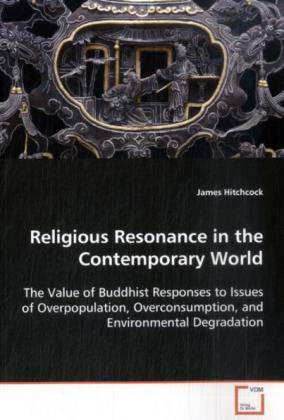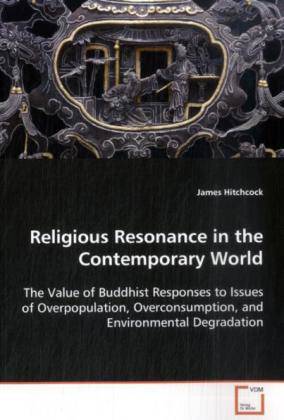
- Afhalen na 1 uur in een winkel met voorraad
- Gratis thuislevering in België vanaf € 30
- Ruim aanbod met 7 miljoen producten
- Afhalen na 1 uur in een winkel met voorraad
- Gratis thuislevering in België vanaf € 30
- Ruim aanbod met 7 miljoen producten
Zoeken
Religious Resonance in the Contemporary World
The Value of Buddhist Responses to Issues of Overpopulation, Overconsumption, and Environmental Degradation
James Hitchcock
Paperback | Engels
€ 48,45
+ 96 punten
Omschrijving
As the global population continues to increase at an alarming rate, the world, as a whole, now faces the issue of overpopulation. If the world's natural resource consumption and environmental pollution/destruction continue at their current pace, then the earth will eventually no longer be able to sustain all of its inhabitants. Social change is the only way to prevent this. The world's religious traditions possess particular motivational qualities with respect to people's worldviews and behaviors. All of the world's religious traditions are responding, in some way, to overpopulation. Traditions in isolation, however, do not address the complexities of the current ecological crisis. Overpopulation requires a broader approach that unites the respective responses. This book examines the value of responses to overpopulation from certain Buddhist intellectuals in the contemporary religion and ecology discourse concerning overpopulation while also underscoring instances of resonance between those responses and ones from modern Christian thinkers.
Specificaties
Betrokkenen
- Auteur(s):
- Uitgeverij:
Inhoud
- Aantal bladzijden:
- 60
- Taal:
- Engels
Eigenschappen
- Productcode (EAN):
- 9783639097672
- Verschijningsdatum:
- 6/11/2008
- Uitvoering:
- Paperback
- Formaat:
- Trade paperback (VS)
- Afmetingen:
- 152 mm x 229 mm
- Gewicht:
- 95 g

Alleen bij Standaard Boekhandel
+ 96 punten op je klantenkaart van Standaard Boekhandel
Beoordelingen
We publiceren alleen reviews die voldoen aan de voorwaarden voor reviews. Bekijk onze voorwaarden voor reviews.











